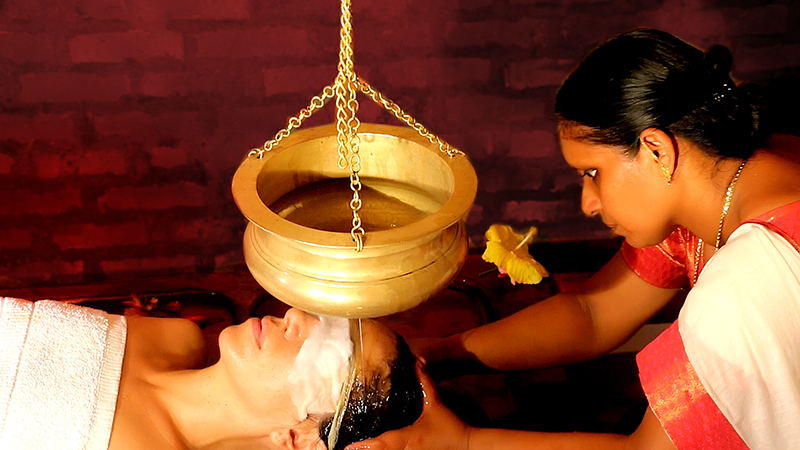Stress and anxiety have become prevalent issues in today’s fast-paced world. Many people are seeking natural remedies to manage these conditions and promote overall well-being. Ayurveda, an ancient system of medicine originating from India, offers a holistic approach to addressing stress and anxiety. By understanding Ayurvedic principles and incorporating specific remedies and practices into your lifestyle, you can effectively manage stress and anxiety levels, leading to improved mental and emotional well-being. Read on below to find out all about an Ayurveda treatment for stress and anxiety.
Understanding Ayurveda
Ayurveda is a comprehensive system of medicine that focuses on the balance between mind, body, and spirit. According to Ayurveda, stress and anxiety are caused by imbalances in the doshas, which are the three fundamental energies that govern our physiological and psychological functions: Vata, Pitta, and Kapha. By identifying your predominant dosha and addressing its specific needs, you can restore balance and alleviate stress and anxiety symptoms.
Identifying Your Dosha
To determine your dosha, you can consult with an Ayurvedic practitioner or take online quizzes that assess your physical and mental characteristics. Vata types are typically prone to anxiety, worry, and restlessness. Pitta types may experience stress due to perfectionism and competitive nature. Kapha types may struggle with feelings of heaviness and stagnation. Understanding your dosha can help you personalize your approach to managing stress and anxiety.
Diet and Nutrition
Ayurveda emphasizes the importance of a balanced and nourishing diet to support overall well-being. Certain foods and herbs can help alleviate stress and anxiety symptoms.
- For Vata types, warm and grounding foods like cooked grains, root vegetables, and herbal teas are recommended.
- Pitta types benefit from cooling foods like fresh fruits, vegetables, and soothing herbal infusions.
- Kapha types benefit from light and stimulating foods like spices, legumes, and herbal tonics.
- Additionally, incorporating adaptogenic herbs such as ashwagandha, Brahmi, and tulsi can help regulate stress response. It is important to consume a variety of nutrient-rich foods to nourish your body and support optimal mental health.
Lifestyle and Daily Routine
Establishing a daily routine aligned with your dosha can promote a sense of stability and relaxation. Wake up early to align with the Vata time of day, engage in gentle exercise or yoga to balance Pitta energy, and create a calm and peaceful environment to support Kapha types. Regular meditation, deep breathing exercises, and mindfulness practices can help manage stress and anxiety by calming the mind and promoting a state of relaxation.
It is also essential to prioritize self-care activities like massage, aromatherapy, and warm baths to nurture and rejuvenate the body. Creating a structured routine that incorporates these practices can provide a sense of grounding and stability amidst daily challenges.
Ayurvedic Therapies
Ayurveda offers various therapeutic treatments to alleviate stress and anxiety.
- Abhyanga, a self-massage using warm oil, helps calm the nervous system and nourishes the body.
- Shirodhara involves pouring a continuous stream of warm oil onto the forehead, which promotes deep relaxation and mental clarity.
- Panchakarma, a cleansing and rejuvenating therapy, can be beneficial for individuals experiencing chronic stress and anxiety.
- Ayurvedic therapies work holistically, addressing physical, mental, and emotional aspects of well-being. It is recommended to seek the guidance of a trained Ayurvedic practitioner to receive these therapies safely and effectively.
Herbal Supplements
In addition to incorporating herbs into your diet, Ayurveda also utilizes herbal supplements to support the management of stress and anxiety. Adaptogenic herbs like ashwagandha, brahmi, and tulsi are known for their calming and balancing effects on the nervous system. These herbs help the body adapt to stress and promote mental clarity and relaxation.
Other commonly used herbs include liquorice, Shatavari, and jatamansi, which have soothing properties and aid in stress reduction. It is important to consult with an Ayurvedic practitioner or healthcare professional to determine the appropriate dosage and duration for taking herbal supplements.
Breathing Techniques and Mind-Body Practices
In addition to dietary changes and lifestyle practices, Ayurveda emphasizes the importance of breath work and mind-body practices in managing stress and anxiety. Pranayama, the practice of controlled breathing techniques, can have a profound impact on calming the mind and reducing anxiety levels. Deep belly breathing, alternate nostril breathing, and extended exhalation techniques are some examples of pranayama exercises that promote relaxation and balance in the nervous system.
Mind-body practices like yoga and meditation are also integral components of Ayurveda. These practices help cultivate mindfulness, increase self-awareness, and foster a sense of inner peace. Regular engagement in these practices can significantly reduce stress and anxiety symptoms, enhancing overall well-being.
Seeking Professional Guidance
While Ayurveda provides valuable tools for managing stress and anxiety, it is essential to consult with a qualified Ayurvedic practitioner or healthcare professional. They can provide personalized guidance based on your unique needs and health history. They can also help monitor your progress and make adjustments to your treatment plan as necessary.
Additionally, they can identify any underlying imbalances or health conditions that may contribute to stress and anxiety, and provide comprehensive support to address these issues. If you are seeking an Ayurveda treatment in Kerala for stress and anxiety, you can book an appointment at Ishani Ayurveda. Their experienced professionals will help you embark on a journey towards inner peace, stress relief, and anxiety management.
Final Word
Managing stress and anxiety with Ayurveda offers a holistic and natural approach to promoting overall well-being. By understanding your dosha, adopting a balanced diet, incorporating lifestyle practices, engaging in Ayurvedic therapies, and considering herbal supplements, you can effectively address stress and anxiety symptoms. Remember to consult with a qualified practitioner to receive personalized guidance and support on your Ayurvedic journey towards a calmer and more balanced state of being. With the wisdom of Ayurveda, you can cultivate inner harmony and resilience in the face of life’s challenges.





